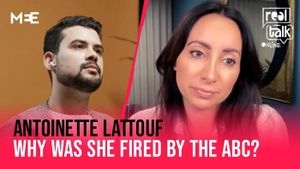Costco and the Teamsters union have maneuvered to avoid a potential strike after reaching a tentative agreement for a new contract, representing 18,000 workers across six states. This recent development was confirmed by Teamsters spokesman Matthew McQuaid, but the specific details of the agreement remain elusive to union members.
Costco, which employs around 219,000 people at 617 locations across the U.S., has its labor agreement with the Teamsters applying to less than 10% of those stores. The union’s members from states including California, Washington, Maryland, Virginia, New Jersey, and New York expressed concern over labor conditions and compensation levels, especially considering Costco's record profits. The company reported revenue growth of 5% to $254 billion and net income of $7.36 billion for its fiscal year ending September 1, more than double what it earned just four years ago.
“Costco Teamsters deserve an industry-leading contract reflecting the company’s massive profits,” asserted Teamsters General President Sean O’Brien. His remarks aligned with union sentiments demanding contracts commensurate with the company’s financial success.
Despite the tentative agreement, many workers were left dissatisfied with the lack of transparency surrounding its terms. Reports have emerged indicating the contract was negotiated behind closed doors, keeping union members uninformed. This secrecy sparked frustration and concern among the ranks, particularly when considering past contract concessions and the current inflationary pressure on wages.
The union's decision to call off the strike just hours before it was set to commence also raised eyebrows, with some members believing the leadership was more focused on maintaining operations for Costco than genuinely advocating for improved worker conditions. Many rank-and-file workers felt unprepared for the abrupt announcement made via social media, instead of through direct communication within their local chapters.
Statements from workers on the ground reveal deep dissatisfaction with the Teamsters' lack of preparation to strike, indicating a broader sentiment of neglect among the organized workforce. Workers suspected the contract may fall short of adequate compensation to meet the rising cost of living, with some emphasizing the urgent need for wage increases as prices continue to skyrocket.
Workers such as Tony, who has dedicated decades to Costco, voiced concerns about the future of younger employees, noting serious issues related to worker benefits, “A lot of these young people will never see” retirement benefits. Others, like simply identified employees, were more vocal against the decision-making strategies employed by union leaders, who they felt prioritized corporate stability over worker welfare.
“The union was asking for a $10 dollar raise, $5 in the first year. Then when I heard Costco was only offering $1, it’s clear they don’t care,” reported Juan, a food service worker. Similar sentiments echoed through the workforce as multiple individuals remarked on prior concessions made which detracted from their sick leave benefits. Many lamented over the cuts to their sick days, and how the current terms might lead to broader consequences within their communities, especially for workers supporting families.
Concerns stretched beyond financial negotiations—workers expressed apprehension over the growing surveillance measures under discussion at Costco, which they feel infringe on their privacy. Such worries exemplify the broader mistrust between employees and management, reflecting frustrations over more than just monetary compensation.
Adding to the complexity of the negotiations are the political ramifications ensuing from these negotiations. Costco workers have increasingly voiced their concerns about the overlap of union leadership with political agendas. Many opt to criticize both major political parties, feeling they represent two sides of the same failing strategy. Workers showed skepticism around the Teamsters’ alignment with political entities, particularly concerning perceived efforts to sidestep broader working-class concerns.
Despite some workers acknowledging the potential of collective action, frustration over the handling of negotiations left many feeling unsupported and anxious about the future. Michael, with ten years under his belt at Costco, stated, “I’m praying the negotiations go well… but I’m doubtful it’s going to be enough to compensate for the rising costs.” His sentiment was echoed by several others who find themselves facing tough financial situations with rents and living expenses poised to rise.
Beyond wages, there’s also growing unease about the disconnect between Teamster leadership’s decisions and the realities faced by union members. Many feel frustrated by the lack of updates and the secrecy surrounding the negotiations, leading some workers to believe their rights were being compromised for the sake of political expediency.
The economic backdrop, compounded by political tensions, raises questions about the future of labor negotiations at Costco and beyond, especially as visible discord grows. With the cost of living rising, frustration mounts among workers who fear their voices are not being heard, and perhaps even marginalized by both union leadership and corporate interests. How these sentiments will affect Costco's labor relationship remains to be seen, as workers await clearer communication and actionable results from their leadership.



